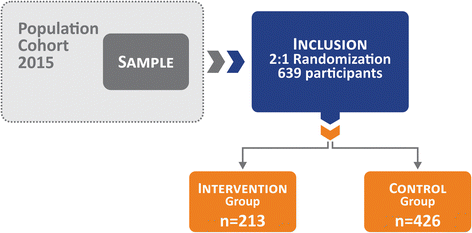Physical activity during pregnancy and maternal-child health (PAMELA): study protocol for a randomized controlled trial
- PMID: 26003406
- PMCID: PMC4446829
- DOI: 10.1186/s13063-015-0749-3
Physical activity during pregnancy and maternal-child health (PAMELA): study protocol for a randomized controlled trial
Abstract
Background: Preterm birth is associated with most cases of neonatal deaths and negative health outcomes, and hypertensive disorders. Hypertension is influenced by maternal behavior, such as physical activity. Physical activity is associated with better outcomes for mother and fetus, besides healthier weight gains during pregnancy. Few women are physically active during pregnancy and few clinical trials have been carried out with pregnant women. The aim of this paper is to describe the protocol of a controlled trial evaluating whether regular exercise during pregnancy may result in improved maternal-child health and neonatal outcomes.
Methods/design: The PAMELA (Physical Activity for Mothers Enrolled in Longitudinal Analysis) trial is a randomized controlled trial nested in a birth cohort study. Eligible women belonging to the birth cohort will be invited (between the 16th and 20th week of gestation) to enroll in the trial. Baseline data (blood and urine samples, anthropometry and pulmonary function) will be collected at enrollment. The same assessments will be repeated eight and 16 weeks after baseline. After randomization, women will be allocated into either one of these groups: control, 426 women who will be advised to keep their usual daily activities; and intervention, 213 women who will engage in an exercise program, three sessions a week. At least 70 % attendance over 16 weeks will be required to be considered compliant to the intervention. Exercise protocol will include aerobics, strength and flexibility training. Maternal and child outcomes will be measured at the 36th week of gestation, at birth and at three, 12, 24 and 48 months postpartum. An intention-to-treat analysis will be performed.
Discussion: Few women are active during pregnancy and a vast majority decrease their activities or even quit exercising. We present a population-based regular exercise intervention focused on the prevention of hypertension, pre-eclampsia and preterm birth. Data on the underlying cohort will allow future analysis using different outcomes with low probability of recall bias or misclassification of exposure status. Results will potentially influence prenatal care counseling in regards to physical activity.
Trial registration: Clinicaltrials.gov identifier: NCT02148965 , registered on 22 May 2014.
Figures
References
-
- World Health Organization . Born too soon: the global action report on Preterm Birth. Geneva, Switzerland: WHO; 2012.
-
- Barros FC, Victora CG, Matijasevich A, Santos IS, Horta BL, Silveira MF, et al. Preterm births, low birth weight, and intrauterine growth restriction in three birth cohorts in Southern Brazil: 1982, 1993 and 2004. Cad Saude Publica. 2008;24(Suppl 3):390–8. doi: 10.1590/S0102-311X2008001500004. - DOI - PubMed
Publication types
MeSH terms
Associated data
Grants and funding
LinkOut - more resources
Full Text Sources
Other Literature Sources
Medical



